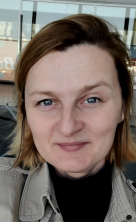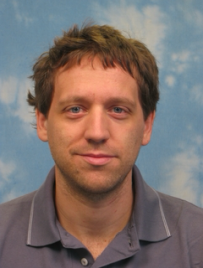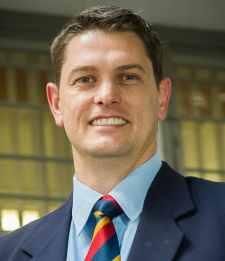The 7th ISDE International Lectures, with the theme of “Cognition, Visualization, and Extended Reality”, was given on November 15, 2023, 9:30 - 11:00 am (CET). At this event, four speakers were invited to provide insights into the role of color in cartography and the integration of extended reality technologies into other fields such as immersive education and health.
Theme: Cognition, Visualization, and Extended Reality
Date & Time: November 15, 2023, 9:30 - 11:00 am (CET)
Organized by: International Society for Digital Earth
Supported by: International Research Center of Big Data for Sustainable Development Goals
International Journal of Digital Earth
Big Earth Data
Invited Speakers:
Izabela Gołębiowska (University of Warsaw, Poland)
Luciano Abriata (Swiss Federal Institute of Technology Lausanne, Switzerland)
Koos de Beer (University of Pretoria, South Africa)
Jannie Maritz (University of Pretoria, South Africa)
Moderator:
Arzu Cöltekin, Victoria Rautenbach, and Azile Mdleleni
Programme:
9:30-9:35 | Welcome and Introduction |
9:35-9:55 | Topic: Color in cartography: On successful color use in visualization Speaker: Izabela Gołębiowska (University of Warsaw, Poland) |
9:55-10:15 | Topic: Work and education involving molecules made easier with modern human-computer interactions: All web-based Speaker: Luciano Abriata (Swiss Federal Institute of Technology Lausanne, Switzerland) |
10:15-10:35 | Topic: XR at FHS Speaker: Koos de Beer (University of Pretoria, South Africa) |
Topic: XR in Mining Education Speaker: Jannie Maritz (University of Pretoria, South Africa) | |
10:35-11:00 | Group Photo Q&A |
Short Bio of Invited Speakers:

Izabela Gołębiowska
University of Warsaw, Poland
Izabela Gołębiowska is an associate professor at University of Warsaw, Faculty of Geography and Regional Studies. She received the PhD degree in cartography from the University of Warsaw in 2011. Her research interests cover topics in cartography, (geo)visualization, GIScience with focus on perception and cognition, thus including map user studies. She has been a PI or co-PI of projects in thematic cartography, color use in (spatial) data visualization or geodashboard design. She has been also involved in utilizing GIS and geovisualization within other disciplines, such as planetary geology and analog Mars simulation.

Luciano Abriata
Swiss Federal Institute of Technology Lausanne, Switzerland
Luciano Abriata is a scientist and a content creator focused on the natural sciences and modern computer technologies. With a PhD in biological nuclear magnetic resonance, he is since 2012 a Senior Scientist at EPFL's Laboratory for Biomolecular Modeling led by Prof. Dal Peraro and at EPFL's Protein Structure Core Facility. In the Dal Peraro group he leads research lines on the use of novel human-computer interaction technologies such as augmented and virtual reality to assist education and work in various fields of chemistry and biology.
Abriata is a "technology integrator" - He works on a range of fields from protein analysis and design to human-computer interactions, with a passion for mixing sciences and technologies. With Eng. Fabio Cortes Rodriguez, he is the co-creator of moleculARweb, a website for chemistry and biology education using commodity augmented reality, and of MolecularWebXR, the Metaverse’s ultimate immersive tool for education and discussion in chemistry and structural biology, available for free use in web browsers of all devices from highly immersive VR headsets to phones and computers.

Koos de Beer
University of Pretoria, South Africa
Koos de Beer is an XR specialist and consultant working with the University of Pretoria. He works closely with the Faculty of Health Sciences and the Department of Mining engineering. He is the XR consultant for the Exxaro chair in XR technology at the University of Pretoria. He has been working with XR technology since the resurgence of VR in 2010 and has experience with designing and developing XR applications as well as setting up XR laboratories and spaces. He has extensive experience in teaching and learning with immersive technology and serves on the international expert panel for the yearly State of XR and immersive learning report with the iLRN group.

Jannie Maritz
University of Pretoria, South Africa
After graduating from University of Pretoria with a bachelor’s degree in mining engineering, he joined a deep level gold producer and completed all his industry competency certifications. He then left the production environment and turned to consulting as he pursued a steeper learning curve toward his professional registration with the Engineering Council of South Africa. Later, he returned to his Alma Mater as lecturer for Rock Engineering and Mine Design. He holds post graduate degrees in Technology Management and Mining Engineering.
At the Department of Mining Engineering, he is teaching strata control and rock engineering modules to under and post graduate students, whilst keeping a keen interest in research within the support and mine design domain. His expertise expands into data visualization and immersive learning as he also oversees the activity of the Virtual Reality Centre at the department. Jannie functions as the Teaching and Learning Head to the department, ensuring compliance to university policies and procedures to ensure quality education to the UP-mining engineering students. As part of his research interests, he forms part of the Exxaro Chair in XR Technology research team which is co-chaired by the Mining Engineering and Information Science departments.

2004-2026 All Rights Reserved 京ICP备06045536号-1 京公网安备 11010802041631号